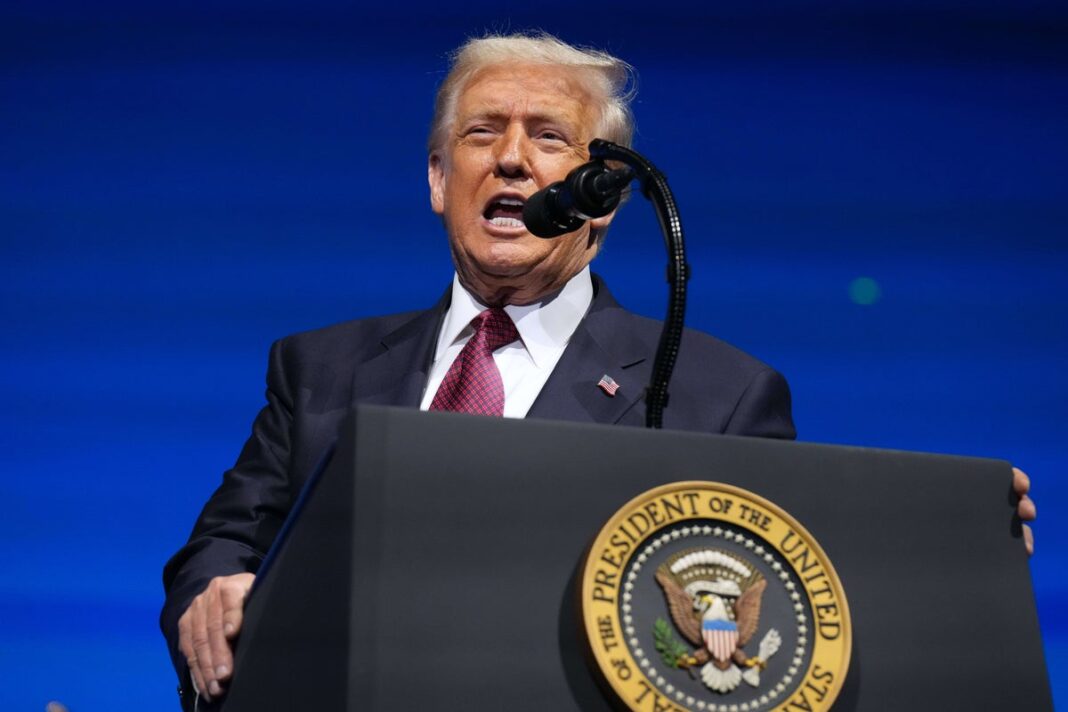Trump’s Response to Mamdani’s Mayoral Victory: A Cauldron of Political Tensions
The Moment of Victory
On a pivotal night in November, the political landscape of New York City was irrevocably altered. Zohran Mamdani, the self-styled “Trump’s worst nightmare,” emerged victorious in the mayoral race with a compelling message centered on affordable living—striking a chord with a populace yearning for change. His campaign promises included more equitable taxes and significant public transportation reforms. The excitement was palpable; his acceptance speech served as a clarion call for solidarity against perceived threats, particularly from Trump.
Trump’s Reaction
In a rapid-response interview with Fox News, President Donald Trump wasted no time in critiquing Mamdani’s acceptance speech. He described it as “angry toward me” and labeled it “very dangerous.” Trump expressed concern about the implications of Mamdani’s rhetoric, suggesting that the new mayor must exhibit respect for Washington if he aims for success. This reflected a typical Trumpian blend of bravado and caution, questioning Mamdani’s approach while reminding him of the political realities he now must navigate.
A Threat of Disinvestment
The tensions escalated when Trump hinted that he might allocate only the “very minimum” of federal funds to New York City under Mamdani’s administration. This threat underlined the high stakes involved in this electoral victory, signaling a complicated relationship between local governance and federal support. It also highlighted Trump’s keen awareness of how critical financial backing can be in advancing a mayor’s agenda, especially one rooted in reformative policies that could affect corporate taxes and public services.
Political Rivalry with Newsom
Moreover, Trump didn’t just limit his ire to Mamdani. He also targeted California Governor Gavin Newsom, even coining a derisive nickname—“Slimy Newscum.” Trump’s critique suggested that he viewed Newsom as a direct rival on the West Coast, especially in light of recent political shifts favoring Democrats. Newsom, for his part, quickly responded on social media, emphasizing Trump’s loss in their previous electoral encounters.
A Wider Democratic Surge
The day wasn’t just a win for Mamdani; it marked a significant moment for the Democratic Party overall. Several other key elections resulted in Democratic victories, bolstering the party’s influence across various states. For instance, Abigail Spanberger made history as the first woman elected governor of Virginia, and Mikie Sherrill secured New Jersey’s governorship, further solidifying the Democratic stronghold.
The Redistricting Referendum
California also saw a monumental shift with the passing of Proposition 50, which would allow for redrawing congressional districts—a maneuver that could bolster Democratic representation. This move is part of a broader trend aimed at counteracting Republican advantages in districting following similar redistricting efforts in states like Texas.
Responses from the Democratic Sphere
Following the elections, incoming Mayor Mamdani engaged in discussions with high-profile allies, including Alexandria Ocasio-Cortez, who expressed her enthusiasm about Mamdani’s win. The collaboration between these progressive figures is seen as a harbinger of policy initiatives that could further shift the narrative in favor of progressive reform in areas such as housing, transportation, and healthcare.
Trump’s Call for a Shift in GOP Messaging
In this charged atmosphere, Trump has urged Republicans to focus on the theme of “affordability,” an area where Democrats are gaining traction. In his interviews, he emphasized that the party needs to talk more about cost-of-living issues, a subject poignantly addressed by Democratic campaigns. This acknowledgment signals Trump’s recognition of the changing tides and the urgency for Republicans to adapt to the electorate’s concerns.
Controversial Commentary on Voter Dynamics
In a particularly eyebrow-raising segment, Fox News host Jesse Watters attributed Mamdani’s success to single women, claiming they were the driving force behind his coalition. This commentary posits a framework for analyzing voter demographics in relationship to political power dynamics—a lens through which future electoral strategies may be developed.
The Road Ahead
As Mamdani prepares to take office, the political chessboard is undeniably shifting. Trump’s reactions underscore the uncertainty and rivalry inherent in contemporary politics, where mayoral elections can resonate far beyond local ballot boxes, influencing national dialogues and party strategies.
The elevating discourse around affordability, access, and representation will likely shape the political maneuvering in the months ahead, as both sides recalibrate their approaches in response to the emerging political realities. With such heightened tensions and expectations, the journey ahead promises to be anything but dull.



